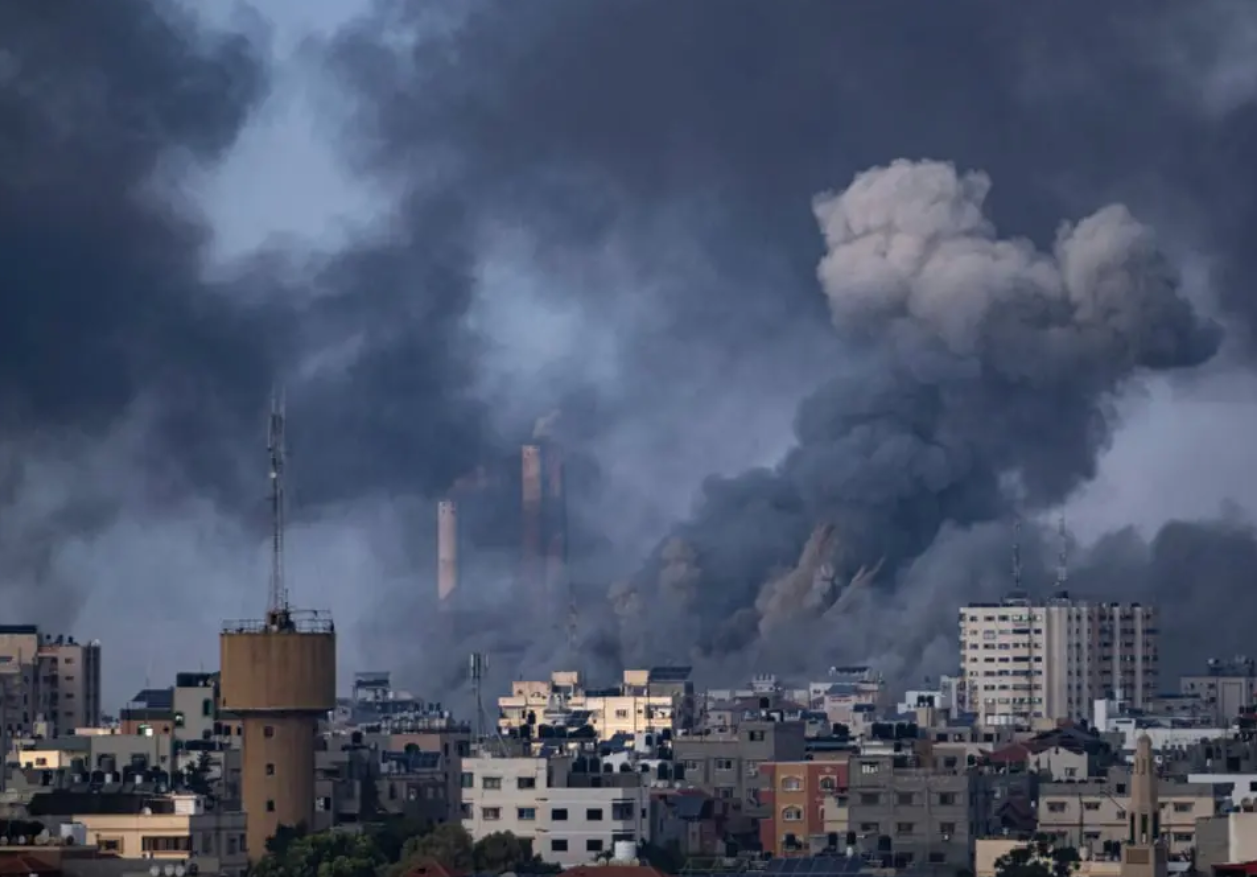Israel Resumes Airstrikes on Gaza, Ending Ceasefire and Escalating Conflict
Han Saerom (Sookmyung Women’s University)
On March 18, Israel launched a wave of airstrikes across Gaza, ending a tenuous ceasefire in place since January. Overnight bombings killed at least 85 Palestinians, bringing the total death toll to nearly 600 since limited strikes resumed in early March. Israel justified the offensive as necessary to pressure Hamas into releasing hostages and preventing the group from regrouping. However, critics argue that domestic political motives, including challenges faced by Prime Minister Benjamin Netanyahu, also played a role.
The Hostages and Missing Families Forum, a key Israeli advocacy group, accused Netanyahu’s government of undermining a diplomatic resolution that could have freed the remaining captives. Hamas, in turn, denounced the strikes as an effort to derail negotiations and prolong Gaza’s suffering. On March 21, Hamas fired three rockets into Israel, marking its first attack since the ceasefire’s collapse. While there were no casualties, the exchange signaled a dangerous escalation.
Hamas has insisted that further hostage releases must be tied to a permanent ceasefire and Israeli troop withdrawal, rejecting Israel’s attempts to impose new conditions. Meanwhile, U.S. officials had reportedly been consulted before Israel resumed attacks, despite Washington publicly supporting a ceasefire extension. The breakdown of recent negotiations in Qatar, where the U.S. proposed a phased hostage-prisoner exchange without an immediate Israeli withdrawal, further deepened the deadlock.
The renewed violence has worsened Gaza’s humanitarian crisis, with essential supplies running critically low due to Israel’s continued blockade. As both sides refuse to compromise, the risk of broader regional conflict grows, with armed groups in Lebanon and Yemen expressing support for Hamas. Diplomatic efforts will likely intensify, but without a framework addressing both humanitarian and security concerns, a prolonged conflict appears inevitable.
이스라엘의 가자지구 공습 재개: 휴전 중단 및 분쟁 격화
한새롬 (숙명여자대학교)
이스라엘은 3월 18일 가자지구 전역에 대한 대규모 공습을 단행하며 1월 이후 유지되던 휴전을 사실상 중단시켰다. 이스라엘군은 하마스가 인질 석방 협상에 응하지 않고 재무장을 시도하고 있다며 공습을 정당화했으며, 밤사이 공격으로 최소 85명이 사망했다. 이달 초부터 이어진 공습으로 가자지구 내 사망자는 총 600명을 넘어섰다.
이스라엘 정부는 하마스가 미국이 중재한 휴전 연장 협상에 응하지 않았으며, 추가적인 군사 압박이 필요하다고 주장하고 있다. 하지만 이스라엘 내 인질 가족 단체들은 정부가 외교적 해결의 기회를 정치적인 이유로 포기했다며 강하게 반발하고 있다. 일부 분석가들은 이번 공습이 네타냐후 총리가 국내 정치적 위기를 돌파하기 위한 의도를 담고 있을 가능성을 제기하고 있다.
이스라엘의 공습에 대한 대응으로 하마스는 3월 21일 이스라엘을 향해 로켓 3발을 발사했으나, 인명 피해는 보고되지 않았다. 하마스는 이스라엘이 의도적으로 협상을 무산시키려 한다고 비판하며, 추가적인 인질 석방은 영구적 휴전과 이스라엘군 철수와 연계되어야 한다는 입장을 고수하고 있다.
미국은 이스라엘의 공습 개시 전에 사전 협의를 진행한 것으로 알려졌다. 미국은 휴전 연장을 지지하는 공식 입장을 밝혔지만, 하마스가 최근 협상에서 미국이 제안한 인질-수감자 맞교환안을 거부한 것에 대해 불만을 표시했다. 이 협상에서는 이스라엘군 철수 문제를 후속 논의로 미루는 방안이 포함되었으나, 하마스는 기존 합의에서 이스라엘군 철수가 명시된 만큼 이를 철회할 수 없다는 입장을 유지했다.
이번 공습으로 가자지구의 인도적 위기는 더욱 심화되고 있다. 이스라엘의 봉쇄로 인해 식량과 의료품이 극도로 부족한 상황에서 추가 공습이 이어지면서 민간인 피해가 급증하고 있다. 국제사회가 휴전 중재에 나설 것으로 예상되지만, 현재까지 이스라엘과 하마스 모두 핵심 요구 사항에서 양보할 기미를 보이지 않고 있다.
한편, 가자지구 사태가 악화되면서 지역 내 긴장도 고조되고 있다. 레바논과 예멘의 무장 세력들은 하마스에 대한 지지를 선언하며, 향후 이스라엘을 겨냥한 공격 가능성을 시사했다. 이는 분쟁이 가자지구를 넘어 지역 전반으로 확산될 가능성을 더욱 높이고 있다. 국제사회의 외교적 중재가 강화될 것으로 보이지만, 인도적 위기 해결과 안보 우려를 동시에 충족하는 합의가 마련되지 않는 한 전쟁이 장기화될 가능성이 크다는 전망이 나오고 있다.

